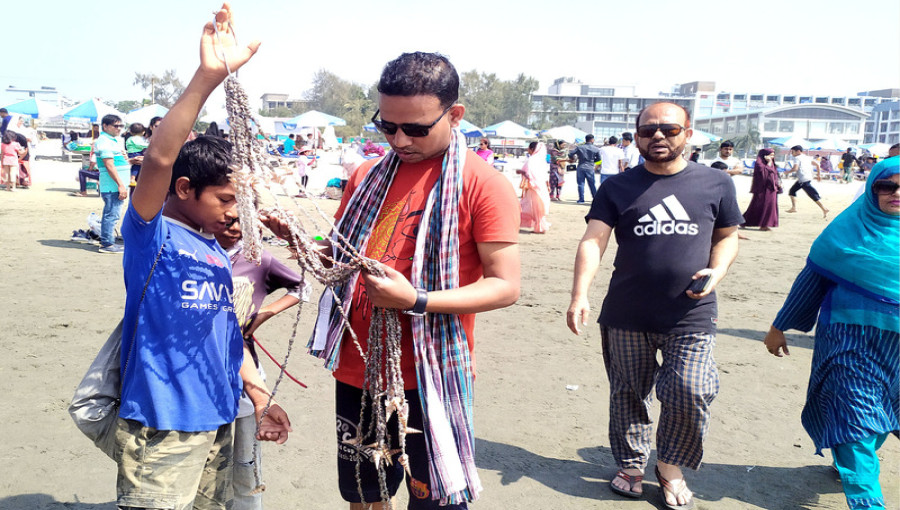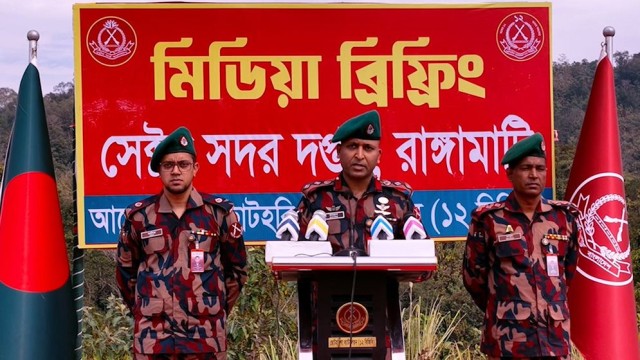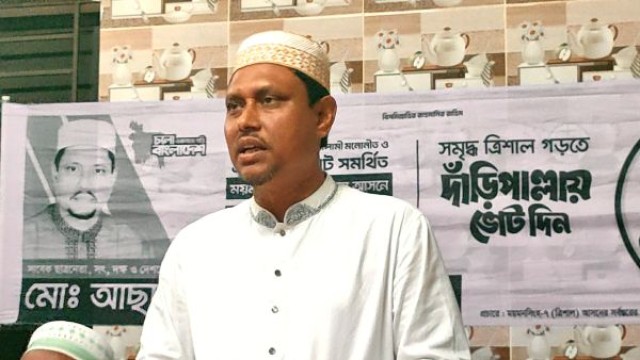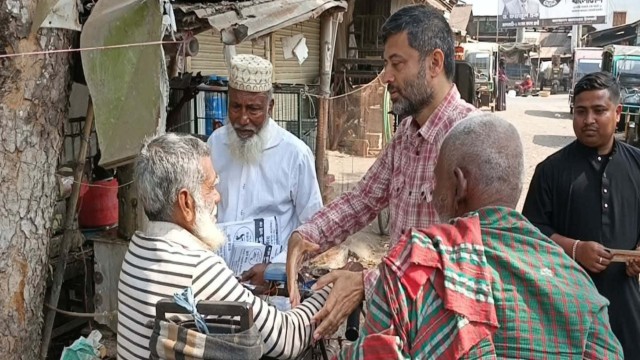Cox’s Bazar, Dec 21, (V7N) - Cox’s Bazar, home to the world's longest sea beach, attracts both domestic and international tourists throughout the year. However, another heart-wrenching scene of this picturesque city is the struggle of the children along the seashore. Most of these children sell shells and beads to make a living, while others give tourists rides on horseback to earn money. At an age when they should be holding textbooks and going to school, they have instead taken on the responsibility of supporting their families and themselves.
One such child is Sohel, a 12-year-old who sells dried fish to run his household. His life tells a tragic story. A ruthless individual poisoned his father, leading to his death, while his mother is ill. Sohel is the eldest of three brothers and three sisters, and he is the sole breadwinner of the family. When asked if he ever wishes to go to school, Sohel replies, “Brother, if I go to school, there will be no rice on the table. Everyone will have to go without food. That's why I don’t go.”
Another child, Arman, is 14 years old and works in the evening at the beach, offering tourists a chance to ride a horse. Arman’s father runs a small business. He is currently in the seventh grade and dreams of becoming a good person as he grows older.
Rahim, an employee in a small shop at Laboni Beach Market, had to leave school due to financial constraints. He had been studying in the fifth grade, excelling in his studies, but after his father’s death, he couldn’t take the Primary Education Completion Examination. Rahim expresses hope that he will resume his education if given the opportunity.
The struggles of these children are not unique to Cox’s Bazar but are widespread across the country. They are sacrificing their childhood and innocence due to poverty, forced to engage in hard work at a young age. With proper guidance and access to education, they could play a significant role in the development of the country.
Experts believe that society has a responsibility toward these children. Creating opportunities for their education, health, and overall well-being is crucial. Compassionate members of society must come forward to help these children, as they are the future of Bangladesh.
What Society Can Do: To improve the lives of such children, cooperation is needed from all levels of society. In addition to the government, NGOs, social organizations, and individuals should come together to create educational opportunities for these children. Only through collective efforts can we help them realize their potential and secure a better future.
END/BT/SMA/AJ/





























Comment: